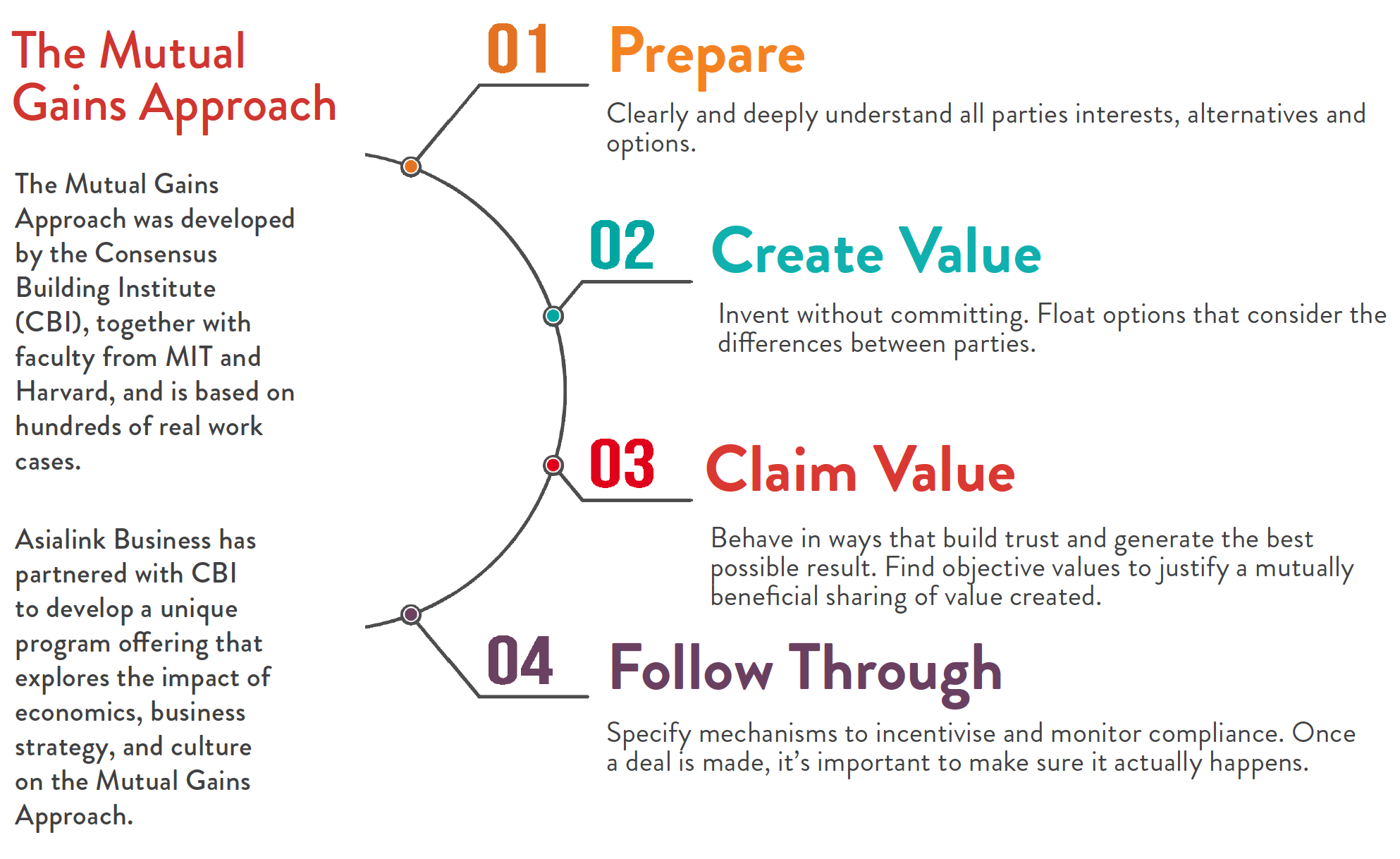Negotiations and Influence in an Asian Context - China
A highly interactive one day training program that combines a world-renowned negotiation framework, practical strategies and deep cultural insights into how you can influence your Chinese counterparts.
If you are conducting negotiations with Chinese partners, suppliers or customers, an understanding of how economics, business strategy and cultural issues impact their negotiation style is critical.
By combining general principles for Mutual Gains negotiation with business strategies to anticipate and manage cultural differences, you can build better relationships and reach better outcomes.
“Negotiations and Influence in Asian Contexts is one of the best training programs I have attended. The interactive program balances theory with ‘real world’ examples, complemented by the deep commercial experience and interest of the highly capable program facilitators. I would recommend this program to any individual who is, or intends to, conduct business in Asia” - General Manager Commercial and Transactions, RACV
Learn more about the program below:
-
What you will learn
This program combines real-world practical strategies with the latest cutting edge theory to enable you to achieve optimal business outcomes at the negotiating table.
- How to combine general principles for mutual gains negotiation with business strategies to anticipate and manage cultural differences in a China context.
- A specialised skillset for negotiating and influencing decision-making in China.
- Tools and frameworks that prepare you for influencing complex negotiations in a China context.
- Practice applying cross-cultural negotiation skills in the context of true-to-life business challenges in China.
- How to influence Chinese counterparts and also maintain strong professional relationships.
- How to apply practical negotiation strategies to your ongoing professional work with China.
-
Program Features
Cultural awareness: An interactive briefing on what Chinese counterparts think and say about Australian negotiations and how you can use this intelligence to your advantage.
Practical exercises: Interactive excercises about power, trust-building, fairness, time management and how you can overcome real-world challenges.
Country brief: You will receive an in-depth country brief for China, which details how each stage of the Mutual Gains Approach can be adapted and applied to the Chinese market.
Case scenarios: Case scenarios and role-plays provide an opportunity for you to implement key learnings from the program and receive direct feedback from negotiations experts and peers.
Action planning: You will identify individual lessons learned, strategies to adopt in the future during cross-cultural meetings and ways in which to strengthen organisational competencies in cross-cultural negotiations.
-
Facilitator

Andrew Wei-Min Lee
Born in Australia and living in China for the past 15 years, Andrew is an expert in Australia-China commercial and cross-cultural engagement. His practice in China has covered a broad range of experiences including multi-million dollar commercial negotiations, cross-border arbitration and mediation, non-profit sector joint ventures and representations of persons facing the death penalty.Andrew is a Fellow of Harvard Law School’s Program on Negotiation and Stanford Law School’s Gould Center for Conflict Resolution. He has lead workshops on negotiation and business across Greater China. He has delivered programs across the United States, Singapore, Japan, Korea and the EU. With Asialink Business, he has delivered multiple programs to Australian public and private organisations. In 2011, he was appointed as a World Bank Mediator for Greater Asia.
-
Who should attend?
This program is designed to provide invaluable skills and techniques to individuals or teams who negotiate with Chinese counterparts.
It is particularly beneficial for:
• Executives
• Business leaders
• Project managers
• Procurement/supply chain managers

